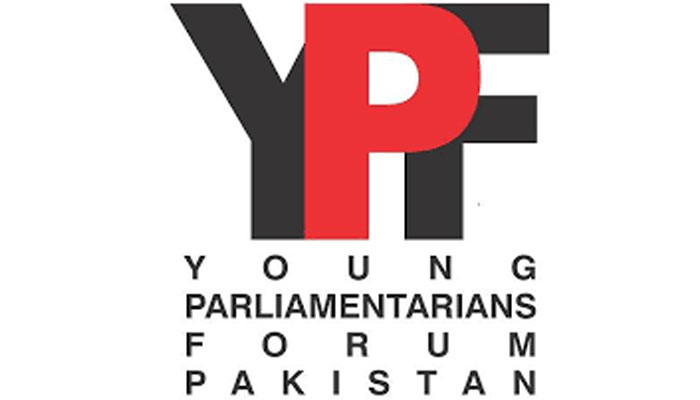UNDP, PILDAT organise session on Rights to Information Bill
ISLAMABAD: Members of the Young Parliamentarians’ Forum (YPF) of the National Assembly of Pakistan on Wednesday were given a detailed briefing on the rights to access the information law at a virtual capacity building session, organised by the UNDP-PILDAT in collaboration with the UNFPA and the Government of Canada.
In the detailed presentation, it said that the right to access to information law has been in place since October 2017.
The law is progressive in nature and is in keeping with the new wave of the rights to information laws across Pakistan, of which Khyber Pakhtunkhwa and Punjab RTI laws have been ranked as the best. It explained that how the law is an important tool ensuring citizens’ right to information. In addition to share key features of the law, according to the law, the Federal Information Commission has to submit its bi-annual progress report to the parliament and also regularly update the same on its website.
The participants were told that they should raise questions in the parliament about the timely submission of the reports by the Federal Information Commission and should review the reports, which would help the commission become proactive that would also provide the young parliamentarians an opportunity to learn about the Federal RTI law.
While speaking on the occasion, member YPF, MNA Romina Khursheed Alam said parliamentary committees are the most effective for holding the institutions accountable, so the Federal Information Commission should also be answerable to the Parliamentary Committees. She also proposed to move a joint resolution from the YPF platform.
The general secretary YPF, MNA Uzma Riaz, thanked the PILDAT for arranging an informative session, and said the YPF members required more and more informative and capacity-building sessions. The president YPF, MNA Shahid Ahmed, also attended the session. The members of the YPF attended the virtual session, including Dr Shazia Sobia Aslam, Wajiha Akram, and others.
-
 Gigi Hadid Talks About 'relieving Tension' Amid Having Hashimoto's Disease
Gigi Hadid Talks About 'relieving Tension' Amid Having Hashimoto's Disease -
 Sarah Ferguson Is 'persona Non Grata', Prince William Makes It Clear To Everyone
Sarah Ferguson Is 'persona Non Grata', Prince William Makes It Clear To Everyone -
 Northern Lights Alert On Valentine’s Day: How, Where & Best Time To Watch Auroras
Northern Lights Alert On Valentine’s Day: How, Where & Best Time To Watch Auroras -
 Dennis Quaid Reveals What Keeps His Marriage To Laura Savoie Healthy
Dennis Quaid Reveals What Keeps His Marriage To Laura Savoie Healthy -
 Mustafa Suleyman Says Microsoft Is Building Its Own AI Superintelligence
Mustafa Suleyman Says Microsoft Is Building Its Own AI Superintelligence -
 Jessica Alba, Cash Warren Finalize Divorce After 16 Years Of Marriage
Jessica Alba, Cash Warren Finalize Divorce After 16 Years Of Marriage -
 China’s AI Boom Takes Center Stage At Spring Festival One Year After DeepSeek Stirred The Industry
China’s AI Boom Takes Center Stage At Spring Festival One Year After DeepSeek Stirred The Industry -
 James Van Der Beek Called His Sixth Child Jeremiah 'healing For Us' Before His Death
James Van Der Beek Called His Sixth Child Jeremiah 'healing For Us' Before His Death -
 Elon Musk Vs Reid Hoffman: Epstein Files Fuel Public Spat Between Tech Billionaires
Elon Musk Vs Reid Hoffman: Epstein Files Fuel Public Spat Between Tech Billionaires -
 Gordon Ramsay Denies Victoria Beckham Got Handsy With Brooklyn At His Wedding
Gordon Ramsay Denies Victoria Beckham Got Handsy With Brooklyn At His Wedding -
 Gordon Ramsay Makes Unexpected Plea To Brooklyn As He Addresses Beckham Family Feud
Gordon Ramsay Makes Unexpected Plea To Brooklyn As He Addresses Beckham Family Feud -
 Prince Harry Warns Meghan Markle To 'step Back'
Prince Harry Warns Meghan Markle To 'step Back' -
 Selena Gomez Explains Why She Thought Lupus Was 'life-or-death'
Selena Gomez Explains Why She Thought Lupus Was 'life-or-death' -
 New Zealand Flood Crisis: State Of Emergency Declared As North Island Braces For More Storms
New Zealand Flood Crisis: State Of Emergency Declared As North Island Braces For More Storms -
 Nancy Guthrie Case: Mystery Deepens As Unknown DNA Found At Property
Nancy Guthrie Case: Mystery Deepens As Unknown DNA Found At Property -
 James Van Der Beek's Brother Breaks Silence On Actor's Tragic Death
James Van Der Beek's Brother Breaks Silence On Actor's Tragic Death




